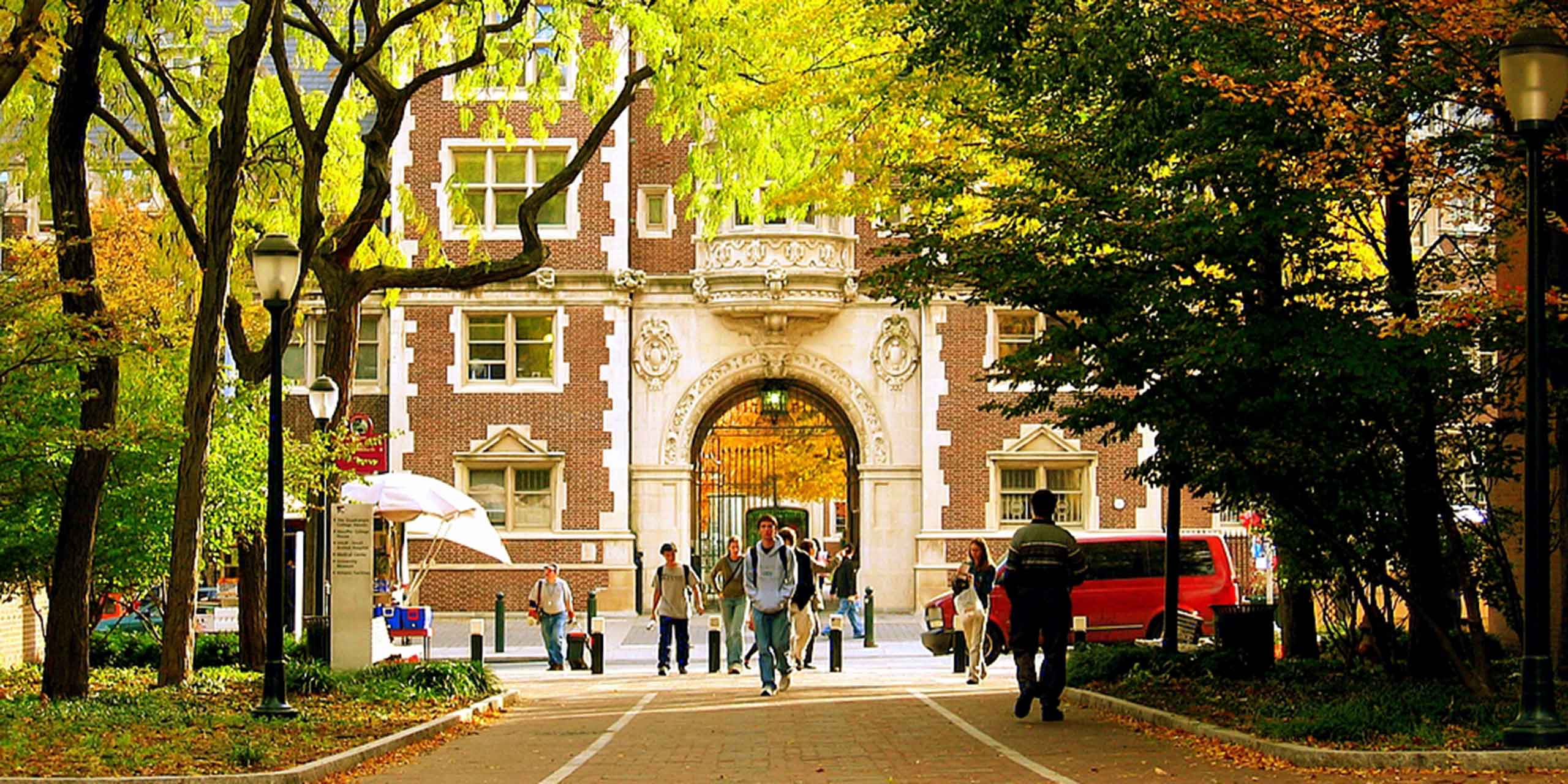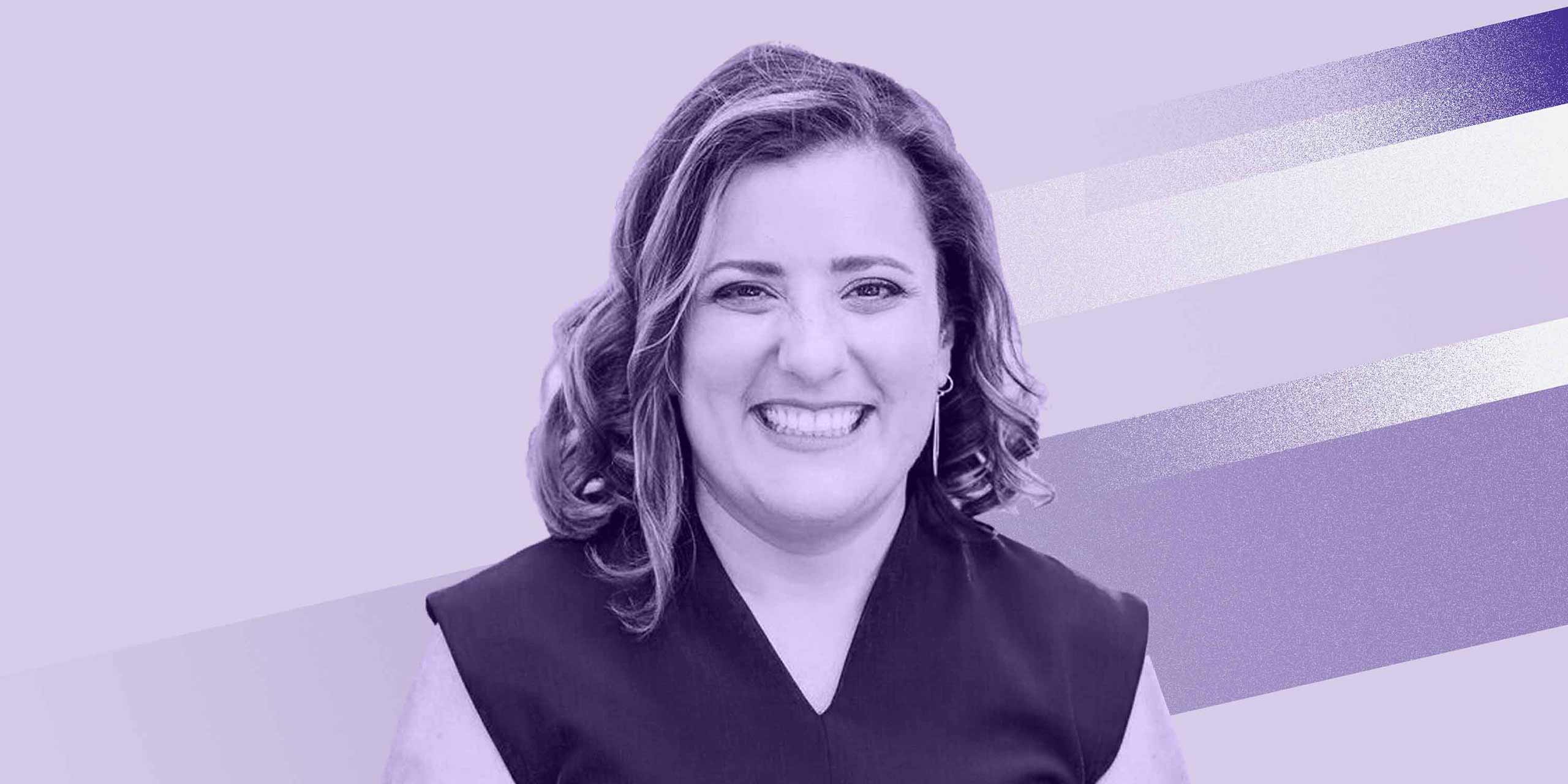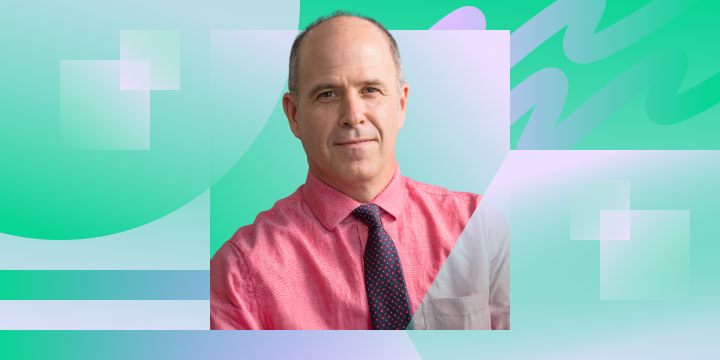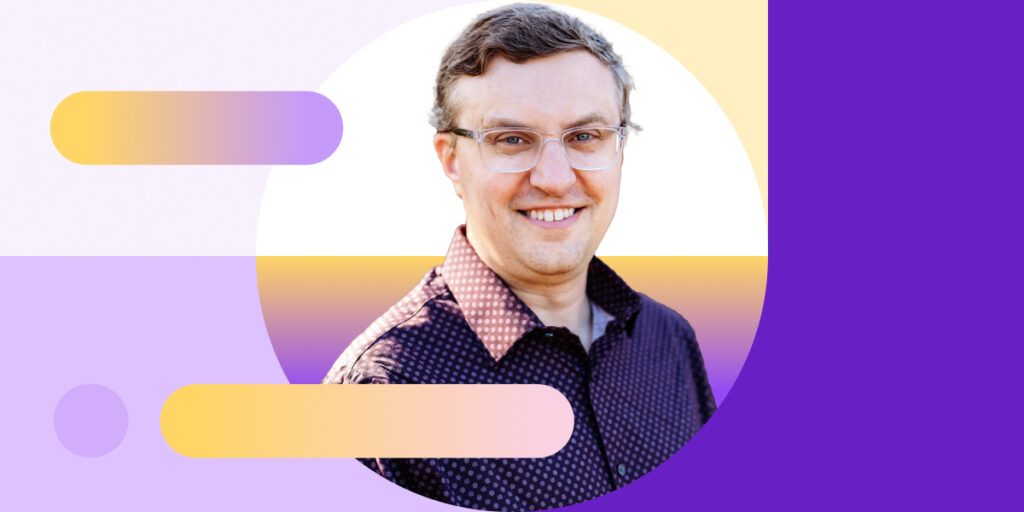Top Hat is the active learning platform that makes it easy for professors to engage students and build comprehension before, during and after class. This interview is part of our recurring series “Academic Admissions” where we ask interesting people to tell us about the transformative role education has played in their lives.
Both of Sara Goldrick-Rab’s parents had graduate degrees, her mother was an adjunct professor, and her grandmother was one of the first women to complete a journalism degree from Northwestern University. But her early undergrad experience was fraught with indecision, until she discovered sociology and developed a passion for action-oriented academia—a calling informed by her own struggles with higher ed’s affordability and the inequality she encountered while researching community college funding.
Now, she’s a Professor of Higher Education Policy and Sociology at Temple University in Philadelphia, a bestselling author for her book Paying the Price: College Costs, Financial Aid, and the Betrayal of the American Dream and a scholar-activist whose 2009 Brookings Institution report “Transforming America’s Community Colleges” influenced elements of President Barack Obama’s American Graduation Initiative. She is also the founding director of the Hope Center for College, Community and Justice, a nonprofit action research centre fixed on making higher education more affordable, equitable and accessible.
All in the family
I’m the granddaughter of a man who was only able to afford a college degree because of the first GI Bill. That degree enabled my grandfather to convince my grandmother to marry him, because she was well-educated and one of the first women to graduate from the Northwestern School of Journalism. I often argue that that really set my life in motion, because together they created a family focused on education—all three of their children (and all four of their grandchildren) went to good colleges and had very successful careers. So I am the child of two college-educated parents, both of whom had graduate degrees, which at the time was uncommon.
I was raised in Fairfax, Virginia, a wealthy community with a very good school system, but we weren’t wealthy by any means. I went to Thomas Jefferson High School for Science and Technology, a public college prep high school which had a 100 percent college-going rate in the early 90s. I was expected to attend an Ivy League school.
But when it came time to go to college, my parents had split up, so they wanted me to choose a public institution in Virginia. I chose the College of William and Mary, but after a few months it just didn’t feel right. I decided to transfer at the end of my very first semester, but I wasn’t sure where to go. I ended up at George Washington University (GW) in D.C., because my mom was an adjunct faculty member there teaching Special Education in the College of Education.
Miraculously for the child of an adjunct, I qualified for free tuition, but what I learned very quickly was that there was going to be a lot to pay for beyond tuition—cost of living for rent and groceries—and my family didn’t have much left in terms of college savings. So I waitressed 40 hours a week throughout undergrad to cover my living expenses.
Discovering sociology

Sara Goldrick-Rab during grad school.
I took a sociology class in my first semester at William and Mary, all about marriage and the family. Given the challenges happening in my own family, that really hooked me in. It also helped that I greatly admired my first sociology teacher at GW, Ruth Wallace. She was a feminist, a former nun and one of the first women to attend the University of Berkeley for sociology. She became my undergraduate mentor.
I decided my strategy was going to be to get through college as quickly as possible, so I could focus on getting into grad school. At GW, I took the bare minimum in terms of required classes, joined the honors program and enrolled in as many sociology classes as I could. I took 18 credits a term and did my Bachelor’s degree in three and a half years.
I finished in December 1998 and had lined up a job for myself at James Bell Associates, a consulting firm in Virginia focused on the well-being of children and families. The position was actually really great because it was related to sociology—I was calling hospitals around the country to find out how many drug-addicted babies they had in their NICU. I found it really suited me, but I knew I was only going to be there for a few months because I had applied to graduate school.
I applied to about a dozen graduate schools in sociology. The first acceptance letter I got came from the University of Pennsylvania. And they offered me free tuition and healthcare and a stipend, so I accepted. I didn’t care that it was an Ivy League school. For me, what was enticing was that they were going to pay me, and that I wasn’t going to accumulate mountains of debt.
The drive to make change

University of Pennsylvania in Philadelphia. Photograph: Bryan Y.W. Shin [CC BY-SA 3.0]
I moved to Philadelphia in the summer of 1999 to start my PhD program, which would give me a Masters after two years. Early on, I was very focused on gender and the labor market. I did a Masters thesis about sex discrimination in restaurant hiring practices, influenced by my time waitressing—I knew that at higher paid restaurants, the servers made better tips. And I knew that men disproportionately held those jobs. Actually, Eliot Spitzer, who was the New York Attorney General at the time, used my Masters thesis in a court case against Harry Cipriani’s restaurant over sex discrimination in their hiring practice, which made me understand the importance of being an action-oriented academic. After that, I wanted to be the kind of academic that worked on a puzzle in order to create some change.
I was working under a man named Jerry Jacobs. He had a project that looked at what was going to happen to community colleges and their students following the passage of the 1996 Welfare Reform. This was a policy about low-income individuals. And over the next four years, I worked closely with a woman named Kate Shaw who was, at the time, a Temple University assistant professor and a guy named Chris Mazzeo, who was a professor at Baruch College at CUNY, both of whom were influential to me.
I began traveling to community colleges in six different states. The first time I set foot on a community college was a pretty damn big moment. It was Lincoln Land Community College in Illinois. I just couldn’t believe the inequality I was seeing. You’re with people who have very little and want education so badly. And you’re with institutions and people that are given so much less money than the Ivy League school where I was being educated. Once I saw what was happening at community colleges, I never left education again—from studying welfare policy to affordability, it seemed like a natural fit for me.
While I was studying community colleges, I helped to uncover a story about how the strong language in a federal policy could filter down even through the state level to discourage low-income women from going to college. And I became second author of a book about called Putting Poor People to Work.
At the same time as I was doing that, I was also writing a dissertation about students who attend more than two colleges, people who we now call swirlers. My grandfather was one of them. It was about how you’re not just a dropout, about how you might move, you might leave one school, but you’re still a viable student. And what my research revealed was there was a lot of inequality in that process.
“I didn’t want to spend my life inside a university”
Throughout all my research and writing the biggest thing I said, over and over, was that I was not going to be a professor, because I thought their endgame was all about academic publishing and theory. I was working with some really influential people—for example, I was trained by Douglas Massey, who had done a lot of work on residential segregation, and Kathryn Edin, who had elucidated what it really meant to be poor. But I still felt like those kind of academics were not the norm. And I didn’t want to spend my life inside a university.
So I was looking for applied research jobs, and then suddenly the Wisconsin Center for the Advancement of Postsecondary Education at the University of Wisconsin-Madison posted an ad that said that they wanted an applied researcher who was a sociologist to work in the College of Education to do policy work. Perfect, right? But in my worldview, I was completely unqualified for that job, so I deleted it. But everybody kept emailing it to me. And my professor, Jerry, got so excited about the possibility, I said I would apply for it just so he could see that I’d get rejected from the job.
I also applied to a few other jobs at the time, at NYU, Vanderbilt and Harvard. At every interview I got, I didn’t go in like the classic candidate—I didn’t act like a graduate student who was desperate for a job. I was crystal clear about what I wanted to do, and left the NYU and Vanderbilt interviews feeling like they wanted me to be something I wasn’t.
But with the University of Wisconsin-Madison, which was the number one ranked sociology department in the country at the time, I detailed exactly who I was and what I wanted to do. I talked about my consulting, I talked about my policy work and I explained how I was disinterested in the classic academic stuff. And to my surprise, they offered me the job.
This happened in January 2004. At that time, I still had not received the data from my dissertation. I had just started dating a guy. I said to him, “Do you want to move to Wisconsin with me?” And he said, “Yes.” I wrote a dissertation in a month and a half. I sat in a chair at a coffee shop in West Philadelphia and I worked on it 18 hours a day, seven days a week.
Leveling the educational playing field
Ultimately, I think I was very lucky that I landed on something I was passionate about so early on. But I also think about the support that I got—the free tuition, for example—and that’s just gone nowadays. I also think of how I was able to make cash tips while waitressing. It’s so radically different now.
I was never at risk of being hungry. I had tremendous support from my family. And all that adds up to an accelerated undergraduate degree and a very fast PhD in five years. So I was 27 years old, with a PhD. I hadn’t even gotten married yet. I moved to Wisconsin. I started the tenure track and I planned my wedding.
Academic life at Wisconsin didn’t really end up affording me the opportunity for the kind of impact that I was after, especially when the political climate changed. I persisted in doing research to make the world better for students in search of degrees and level inequalities in educational opportunity. And I had two babies while I was on the tenure track, doing what I could to make that work alongside my career.
Finally, I was able to craft a far better job when we moved from Wisconsin to Temple University in Philadelphia. Here, my students at this big urban public university live the struggles I study. I teach one graduate course every fall and an undergraduate course every spring. I work with federal and state policymakers every week. Most professors serve on a committee in their own institution. That’s fine, but I always thought we should be outward-facing. It’s an enormous privilege to be a professor at a public institution.
https://www.instagram.com/p/Bnm8lcmnZn9/
And, of course, I’m the founding director of the Hope Center, the action-research center that’s working to make college more accessible and affordable for all students. I have lots of meetings related to research projects and policy work. I do all of our fundraising, I set the direction, I do qualitative interviews, I guide randomized controlled trials, and I interpret statistical results with the staff. I do a lot of writing. I’m on the road visiting colleges around the country, if not every week, then every other week. I’m so lucky that my dean, provost, and college president support these efforts, even cheering them on.
Ultimately, we’re trying to put students’ basic needs front and center—to make higher education work for today’s students. What’s hard is that there are major foundations and major influencers in the higher ed policy space who are still not paying attention to this. And we’re just not going to take “no” for an answer. Students need us to fight for them. We’re pretty insistent and we find that when somebody decides to listen, students start to win.
This interview has been condensed and edited for clarity.


